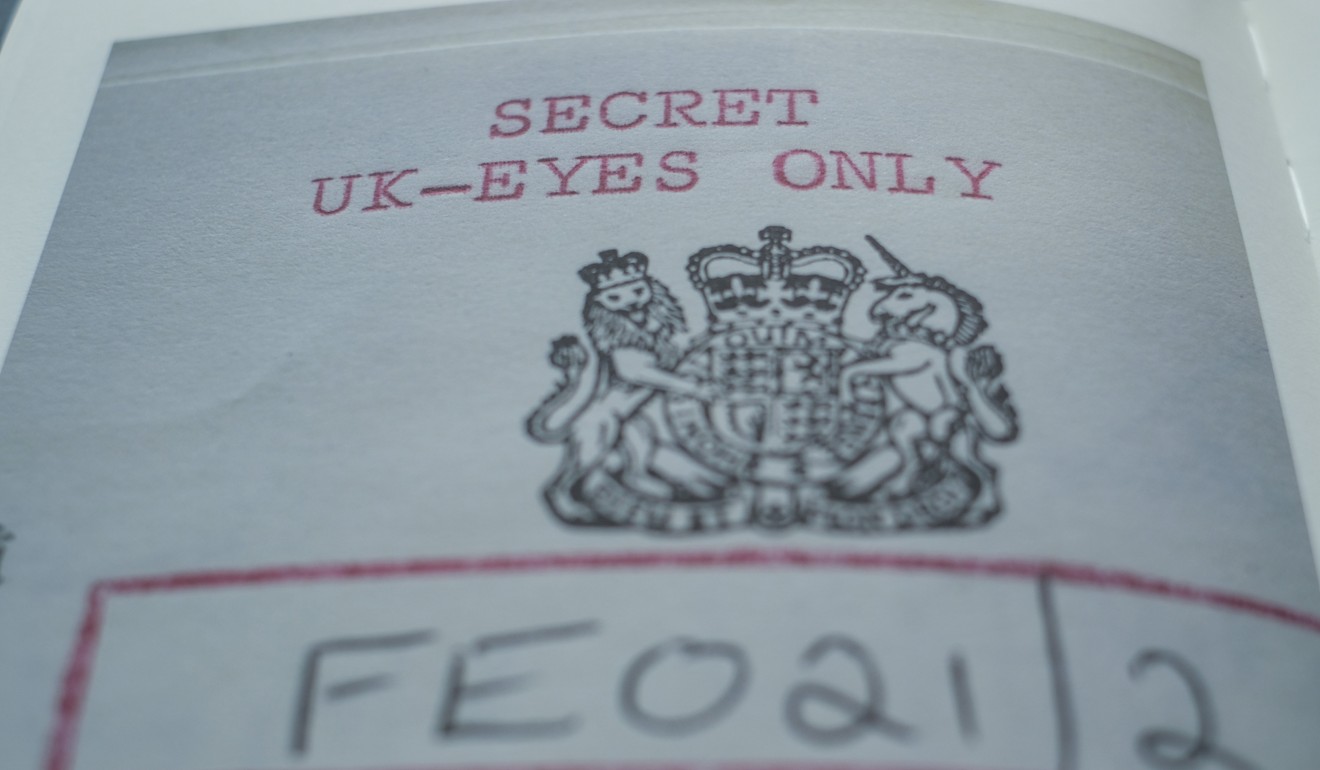
New book of photography opens window to Hong Kong’s colonial past
- Veteran photojournalist Wong Kan-tai focused on collection of files from the National Archives in London
- Father of President Xi Jinping and former Hong Kong governor Sir Murray MacLehose among those featured in Secret 1842-1997
The seating plan of a 1979 banquet hosted by the father of President Xi Jinping for then Hong Kong governor Murray MacLehose is among images in a new book that offers a glimpse into historical intricacies.
Veteran photojournalist Wong Kan-tai’s Secret 1842-1997, published by Mahjong on Saturday, features 114 photographs of papers and pictures from British archives on Hong Kong, from the 19th century to the 1980s.
They were selected from more than 1,000 photos Wong took of files on the city at Britain’s National Archives in London in 2006. He spent a month taking photos in the official archive of the British government that year.
Wong, who joined the media industry in the late 1970s, said he hoped the publication of his photo collection would arouse interest in the city’s history.

He said the filing of apparently trivial documents, such as the seating plan for a dinner hosted in Guangzhou on April 3, 1979, by Xi Zhongxun, then governor of Guangdong province, for MacLehose showed the British government’s respect for history.
Guangdong took the lead on economic reform and opening up during Xi Zhongxun’s leadership in the late 1970s. He is the father of current Chinese leader Xi Jinping.
The dinner was hosted a day before MacLehose officiated the reopening of a train service from Guangzhou to Hong Kong. The service had been stopped during the Cultural Revolution.
Others present at the dinner included Yang Shangkun, then deputy governor of Guangdong province, and who was China’s president from 1988 to 1993, as well as Kan Yuet-keung, senior member of Hong Kong’s Executive Council.
“Who was present and where a guest was seated may be of significance for historians and researchers,” Wong said.
Archives law push must succeed for sake of good governance
A diplomatic note sent by the Qing Court to the British government in the middle of the 19th century, and a photograph of Waterfall Bay in Pok Fu Lam taken in the 19th century, also feature in the book.
The spot was well known among British and European sailors in the 19th century as a source of fresh water.
“The photos are stored in two memory cards and I had kept them in a drawer in my home since 2006,” he said. “I recently decided to publish the book because Hong Kong has witnessed a lot of changes in the past few years.”
Likening archives about Hong Kong to the identity cards of Hongkongers, Wong said archives helped the city’s residents form a historical or collective memory.
“I have no nostalgia for colonial rule, but a civilised and mature society should not forget its past,” Wong said.
Whether a document is useful and should be kept, shouldn’t be decided by civil servants
He lamented the fact there was no archives law in Hong Kong, and expressed concern that some of the post-1997 documents could be destroyed by authorities.
“Hong Kong is very sophisticated in economic development, but is very underdeveloped in protection of historical archives,” Wong said.
“Whether a document is useful and should be kept, shouldn’t be decided by civil servants. It should be protected by an archive law.”
In 2011, the government admitted it had destroyed documents equivalent to almost three times the height of the Two IFC building before it moved into its new Admiralty headquarters.
In December, the Law Reform Commission launched a public consultation on a proposed archives law that would protect public records and archives, as well as the right of the public to gain access to them.

